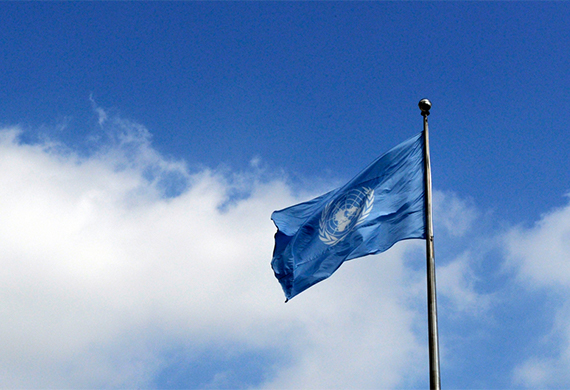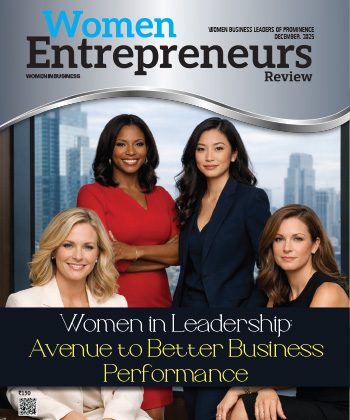
UN Report Unveils Bias Against Women Hasn't Improved in Last Decade
By: WE Staff
As shown by the Gender Social Norms Index (GSNI) assessment by the United Nations Development Programme (UNDP), persistent prejudices against women provide serious obstacles to attaining gender equality and women's empowerment. The prevalence of biases, ranging from perceptions of men as better business executives to justifying wife-beating, contributes to the underrepresentation of women in leadership positions and labour markets. This article delves into the findings of the GSNI report. It emphasizes the importance of challenging and changing biased gender social norms through education, policy changes, and representation to promote women's rights and achieve true gender equality.
Widespread Biases and Stagnant Progress
The GSNI report highlights that biases against women are pervasive worldwide, with nearly 90% of individuals holding at least one bias. These biases cut across continents, income levels, and cultures, reflecting deeply embedded societal norms. Disconcertingly, a significant percentage of people believe that men make better political leaders and business executives, perpetuating gender disparities in leadership positions. Despite some advancements, progress in challenging biased gender social norms remains stagnant, hampering efforts to achieve gender equality.
Impact on Women's Economic Empowerment
Biased gender social norms have a profound impact on women's economic empowerment. Despite significant progress in education, women face barriers in translating their educational achievements into equal economic opportunities. Income gaps between women and men are influenced more by gender norms than by educational disparities. Biased norms contribute to the unequal distribution of domestic chores and care work, which further hinders women's economic advancement and perpetuates gender inequality in the labour market.
Underrepresentation in Leadership
One of the striking consequences of biased gender social norms is the persistent underrepresentation of women in leadership positions. Despite women's progress in education and their capabilities, gender biases limit women's prospects and options for leadership. The scarcity of women in these roles not only deprives societies of the benefits of women's leadership and diversity but also subjects women leaders to harsher judgment and potential backlash.
Challenging Biased Gender Social Norms
Governments play a critical role in challenging and changing biased gender social norms. To drive gender equality, investment is needed in comprehensive laws, policies, education, and representation. By prioritizing gender equality in education curricula, societies can nurture an understanding of gender issues, foster empathy and respect, and challenge harmful stereotypes from an early age. Policy changes should focus on ensuring equal representation of women in leadership positions, tackling discriminatory practices in the labour market, and promoting inclusive workplaces.
The Power of Representation & Inclusion
Representation of women in decision-making processes is pivotal for addressing biased gender social norms. Including women's voices and perspectives enhances the quality of decision-making and enriches ideas and innovations. In addition to being an issue of justice and equality, women's involvement in political, economic, and social spheres is also strategically important for building inclusive and long-lasting societies. Women should be supported and mentored in order to develop their leadership potential, and impediments to their progress should be eliminated.
Combating Online Hate Speech & Disinformation
In the digital era, combatting online hate speech and disinformation is crucial for challenging harmful gender norms. Online platforms have become breeding grounds for the dissemination of biased beliefs and stereotypes. Efforts should be directed toward promoting responsible digital citizenship, fostering respectful online environments, and countering disinformation campaigns. By harnessing the power of technology and media, we can challenge harmful norms and encourage positive conversations that promote gender equality.
Overcoming biased gender social norms is essential for empowering women and achieving gender equality. The GSNI report reveals the prevalence of biases against women and their detrimental effects on women's representation in leadership positions, economic empowerment, and overall well-being. To drive change, it is crucial to invest in education, policy changes, and representation that challenge and dismantle harmful norms. We can create a more equitable and inclusive society where everyone, regardless of gender, may prosper and contribute their skills by advancing women's rights, improving acknowledgement of women's abilities, and assuring equal opportunities. It is our collective duty to oppose sexist gender stereotypes and work towards a future in which every person's rights and potential are realised in order to advance the cause of gender equality.
Most Viewed
- 1 Women's Health Startup HerMD Closing Doors Amid Industry Challenges
- 2 5 Famous Women in Indian Armed Forces
- 3 Saudi Women No longer Require Male Permission for Clothing Choices, says Prince MbS
- 4 Kolkata Medtech Startup Innovodigm Raises Rs 5.5 Crore Seed Funding Led by IAN Group
- 5 Yamunanagar's Kashish Kalra Honoured after Securing 111th Rank in UPSC Civil Services Exam
- 6 Madurai Appoints Its First Woman Corporation Head
- 7 IAS Vijayalakshmi Bidari Appointed as the new Nagpur Divisional Commissioner
- 8 American Entrepreneur Lucy Guo Overtakes T Swift to become Youngest Female Billionaire
- 9 ICC Women's World Cup 2025 Trophy Showcased at Indore's Holkar Stadium
- 10 Aparna Saxena's Beauty Venture AntiNorm Launches in India
- 11 Vidya Nataraj Co-Founded BlueStone Jewellery & Lifestyle files IPO
- 12 5 Women Freedom Fighters of India
- 13 Dr. G Krishnapriya appointed as CEO for Trichy
- 14 M3M & Sirona Partner to Introduce Menstrual Hygiene Vending Machines in 15 Locations
- 15 Punjab Govt launches SHE Cohort 3.0 Supporting Tech-led Women Startups
- 16 Indian origin Lawyer, Sweena Pannu appointed as the US New Superior Court Judge
- 17 The Aurora Tech Award recognizes 4 Indian Women-led Startups
- 18 Kerala's Republic Day parade featured an all-female tableau
- 19 Manisha Kabbur Becomes Karnataka's First Woman International Karate Coach
- 20 Director K. S. Ravikumar's Daughter Maalica Ravikumar Launches Life Coaching Company 'Evergrowth Academy' for Women
- 21 Leezu's Raises Pre-Seed Funding to Accelerate Growth in Sexual Wellness Industry
- 22 Sattu: Super-easy summer drink for PCOS gut healing
- 23 Swathi Nelabhatla creates Sitha App, India's First Women-Exclusive Gig Platform
- 24 7 Timeless Female Kathak Dancers & their Iconic Legacies
- 25 Meet 7 Iconic Women Architects of Modern India & their Most Impactful Work
- 26 This Woman-led Insuretech Startup is Helping Bridge the Education Financing Gap in India
- 27 Women Leaders Share Lessons Learnt from India Women's WC Win
- 28 5 Enterprising Women Founders Powering Singapore's Tech & Innovation Landscape
- 29 4 Women. 4 Stories. One Vision for Smarter, Stronger Healthcare
- 30 Global Gender Gap Narrows to 68.8%, But Full Equality 123 Years Away: WEF Report 2025
- 31 Changemakers: 7 Women Entrepreneurs Taking the Make in India Movement Forward
- 32 Meet Lucy Guo, The Youngest Self-Made Female Billionaire Disrupting Tech
- 33 How Women are Driving India's Festive Online Shopping Surge






